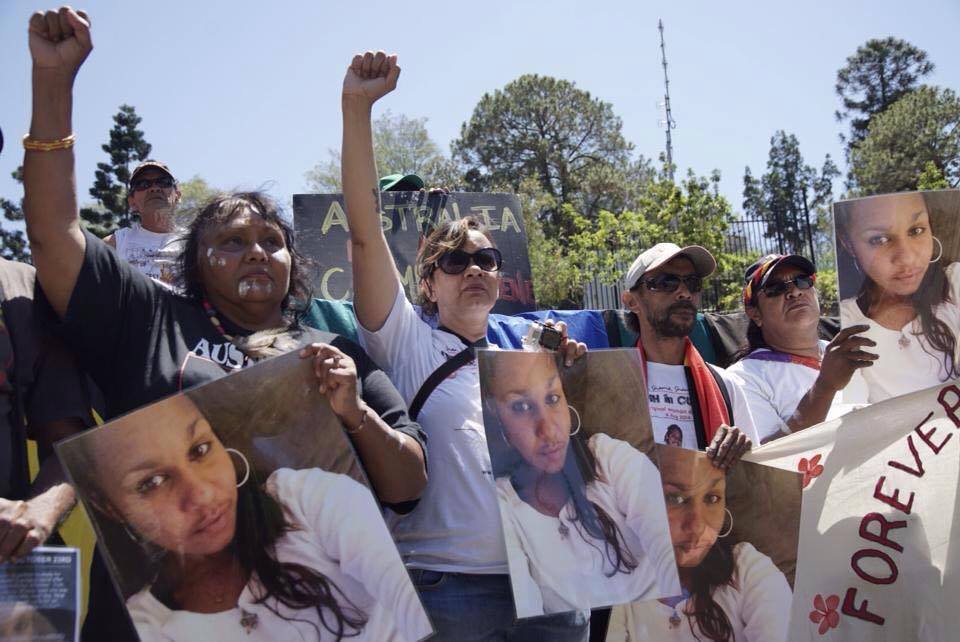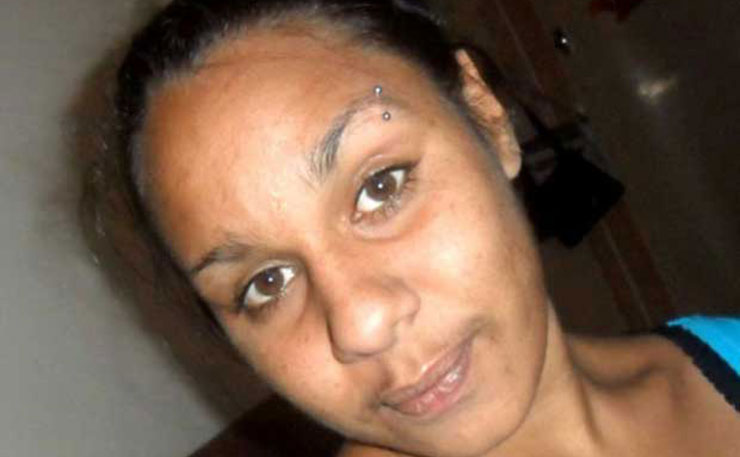The family of 22-year-old Yamatji woman Julieka Dhu, who passed away in a Western Australian watchhouse earlier this year, say a custody notification service is critically needed to slow the number of Aboriginal people dying in custody.
Shaun Harris, Ms Dhu’s uncle, told New Matilda his niece’s death and the subsequent silence from police and wider Australia was “killing me inside”.
“I haven’t had a chance to grieve myself over this… I have to go halfway across the country to speak out,” Harris said.
Ms Dhu died on August 4 of unknown medical complications after being jailed for unpaid parking fines in South Hedland, at the top of Western Australia.
She was refused hospital care while in excruciating pain, and passed away three days after she was arrested.
Mr Harris said the immediate family still had numerous unanswered questions, and were waiting on the interim autopsy report so they could learn his niece’s cause of death.
Custody notification services were a key recommendation of the 1991 Royal Commission into Aboriginal Deaths in Custody, but so far have only been established in one state – New South Wales.
Since the service was introduced in 2000, under NSW legislation implementing recommendations of the Royal Commission, there has not been one Aboriginal death in police custody, the Aboriginal Legal Service of NSW says.
Last Friday, almost 500 people marched in Brisbane against Aboriginal deaths in custody, as the eyes of the world turned to the G20 summit, held over the weekend.

A national day of action for Ms Dhu was held in October, with rallies across the country. The Perth rally provoked a response from Western Australian Premier Colin Barnett, who addressed the protesters and made “a personal commitment” to work with his government in reducing the sky high Aboriginal incarceration rates in the state, and deaths in custody.
But Mr Harris told New Matilda the family had to rely on social media rather than mainstream media to fight for justice for his niece.
“That’s pretty sad, when I have to google my niece’s name and the results that come up are from Facebook, and not news websites.”
There was a disconnection between the media reporting and public concern, but Mr Harris said it was heartening to see the level of support at the rally on Friday.
One of the family’s major demands is a timely coronial inquest, though they also hold concerns about the wider issue of police investigating police.
While Mr Barnett has said he would work to speed up the inquest, the family’s requests to have an independent inquiry were knocked back earlier this year.
But Mr Harris says a key issue is the implementation of a custody notification service in Western Australia.
“We have to have that. Since it was implemented in NSW, they haven’t had one death in custody.”
Aboriginal people still protest against deaths in custody in New South Wales, such as the case of TJ Hickey, who died after being chased by police in Redfern in 2001, and Mark Mason, who was shot by a police officer in Collerenebri in 2010 (the NSW police claim the shooting was a last resort and in self defence).
The Aboriginal Legal Service in NSW had to fight tooth and nail to keep the CNS after the Commonwealth withdrew $500,000 in funding last year.
Under NSW legislation, police have to contact the ALS when taking an Aboriginal person into custody.
NSW police can call the 24-hour seven day a week CNS, where ALS lawyers give early legal advice.
The Aboriginal Legal Service of WA called on Indigenous affairs minister Nigel Scullion to implement a similar service in Western Australia, with CEO Dennis Eggington saying “one must question whether a CNS could have avoided this tragic death”.
The ALSWA doesn’t have the capacity to host a 24-hour hotline.
Donate To New Matilda
New Matilda is a small, independent media outlet. We survive through reader contributions, and never losing a lawsuit. If you got something from this article, giving something back helps us to continue speaking truth to power. Every little bit counts.




